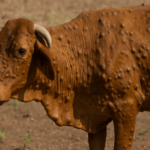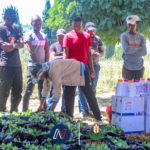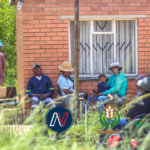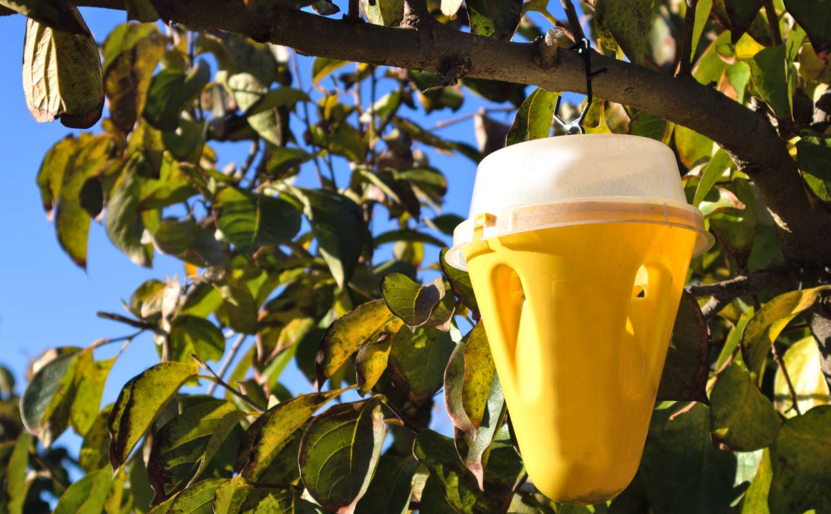The district of Leribe is grappling with an invasive worm species that is causing alarm among sorghum farmers and the Ministry of Agriculture, Food Security, and Nutrition, through its Department of Crops, has confirmed the presence of these destructive pests.
The outbreak was first reported in the Likhetlane area a fortnight ago.
Local farmers raised the alarm after noticing unusual damage to their sorghum fields and upon investigation, agricultural extension officers identified the worms actively feeding on the crops.
While the species is yet to be identified, preliminary observations indicate that it poses a serious risk to both grain yield and forage quality.
Makeka Makhetha, a Crop Production Officer in the ministry, warns that the unchecked spread of this pest could significantly affect sorghum production.
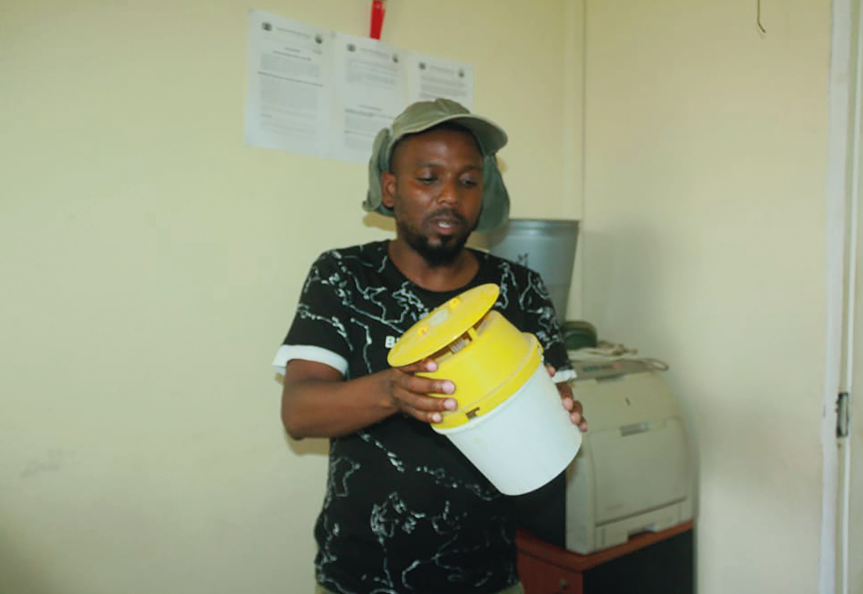
“They have already caused extensive damage, specifically targeting sorghum cobs, where they also lay a large number of eggs. Although their feeding behaviour is aggressive, their impact appears less severe than that of the African armyworm, which has been ravaging crops in the southern region,” he explained.
Unlike the African armyworm, which moves in large swarms and can devastate entire fields overnight, this newly discovered species appears to attack plants individually. This difference in behaviour requires a tailored approach to mitigation.
Samples of the worm have been sent to the Department of Research for laboratory analysis, Makhetha said.
“The findings will guide appropriate and environmentally friendly pest control strategies,” Makhetha stated, adding that pheromone traps have already been deployed in affected areas to track the movement of moths and prevent further spread.
Farmer ‘Malisema Thabeli, who is experiencing the impact first-hand, expressed concern over her deteriorating crop.
“The infestation started over a week ago, and every day, I find more damage. These worms seem to target young sorghum cobs. At this rate, I fear my harvest will be significantly reduced,” she lamented.
This new infestation comes at a time when the African armyworm outbreak is already disrupting farming activities in southern region, particularly in Mohale’s Hoek, Liphiring, Makhaleng, Taung, and Mafeteng.
The Ministry of Agriculture, in collaboration with local communities, has intensified efforts to contain the outbreaks and these include targeted pesticide applications, increased pheromone trap deployment, and strengthened pest monitoring systems.
Minister of Agriculture Thabo Mofosi has called on farmers to report sightings of these pests to extension officers immediately.
“We have experience dealing with the African armyworm, and we are implementing mitigation strategies to contain its spread. However, timely intervention is key,” he stressed.
Lesotho has experienced multiple African armyworm outbreaks in the past, most notably between 2012 and 2015, when they devastated maize and sorghum crops across eight districts, including Berea, Leribe, and Maseru.
Experts note that armyworms thrive in humid conditions, often following periods of prolonged drought.
Their ability to migrate across vast distances, originating from countries like Zambia, Uganda, and Tanzania, increases the likelihood of recurrent infestations.
The simultaneous presence of the African armyworm and the newly discovered worm species has raised concerns among farmers and agricultural experts alike. Without effective and sustainable control measures, Lesotho risks significant crop losses, threatening food security and livelihoods.

